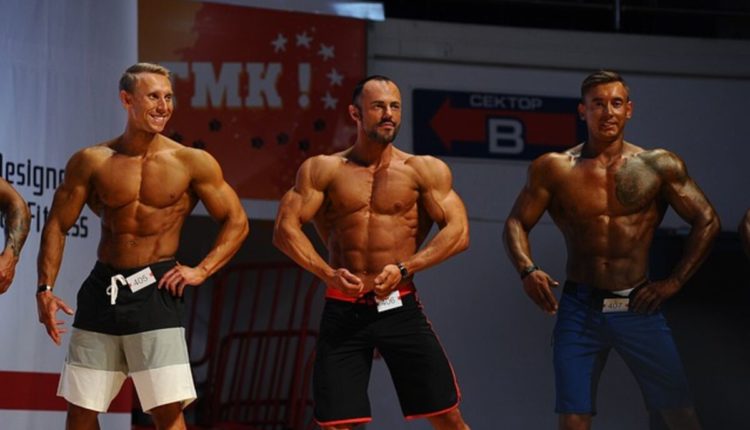Muscle fiber density and strength both decline with age. We begin to lose an average of two to four pounds of muscle per decade at thirty. Furthermore, at age 40, the average person gains two extra pounds annually. It’s common for people to gain 12 to 14 pounds between the ages of 40 and 50. So, being overweight and inactive reduces your flexibility, strength, and range of motion. When people gain weight around the middle, they often experience pain when bending, reaching, or carrying heavy goods.
Building muscle through regular exercise is essential for regaining the energy your body once supplied. Muscles aren’t just strengthened with practice; the repair process within the power is also stimulated, leading to the formation of the new force. Exercising after age 50 is beneficial, as studies have shown that the body adapts slowly to inactivity. You can improve your muscle tone and reduce your fat percentage.
Incorporating fitness into your routine has several advantages.
• Making your heart stronger
Increasing your metabolic rate
Boosting blood flow
• Slimming down
• Making it easier to adapt
Enhancing bone density
More vitality
Lean muscle mass gain
• Boosting your disposition
To maximize the benefits of your workout, you should devote equal time to cardiovascular activity, strength training, and stretching.
Heart-Pumping Workouts
Systemic exercise, also known as cardio or aerobic training. It can be maintained for at least 20–30 minutes, stresses the cardiovascular and respiratory systems, and activates many muscle cells. Some instances are:
• Strenuous walking
To Jog
There is: • Rowing
• Cycling
Skating on frozen lakes
To maximize your health (not fitness) through cardiovascular exercise, you should aim for three 30-minute weekly sessions to raise your heart rate to 80% of your age-adjusted maximum (220 minus your age in years). Cardiovascular exercise has various advantages.
Remedies for High “Bad” Cholesterol
The increase in good HDL cholesterol
Helps reduce blood pressure
The reduction of inflammation
• Keeping a healthy weight
The Handling of Stress
Protection from lifestyle-related illness
The cornerstones of cardiovascular exercise are:
• Strenuousness — it should be difficult for you to breathe.
20-45 minute range
• At least thrice or four times a week.
Strength-Training Routines
Resistance training is a type of exercise that targets specific muscle groups by increasing intensity or resistance to the point where the muscles can’t handle another repeat.
Gaining muscle with resistance exercise increases metabolic rate, making it more straightforward to keep the weight off. The benefits of resistance exercise toward optimal health include:
Strengthening Bones and Muscles
Bone density enhancement
Increased caloric expenditure
• Keeping your weight steady
Muscles are strengthened.
Enhanced adaptability
Improvements in muscle tone and contour
• Decreased discomfort
• A more upright stance
Positivity gains
Lifting weights is a typical kind of resistance training. Weightlifting is an effective form of resistance training, but it is not the only one. Weight-bearing exercises, which involve pushing or pulling against resistance, are the most effective. Bone density can be maintained with just 30 minutes of exercise per week. Three sessions of twenty minutes each per week are all that is needed to see results in terms of muscle gain.
Resistance training is most effective when:
1. vigor, to the point of temporary collapse
2. 8-20 repetitions
Reps: 1-3 sets per muscle group
Second and a half to three times a week (for the significant groupings).
Fifth, rest; after working for a specific muscle group, give it 48 hours to recover.
6. Equilibrium: Train all main muscle groups equally to promote symmetry and decrease the risk of injury.
Stretching and Conditioning
The importance of flexibility training cannot be overstated. Flexibility exercises are designed to help you move more freely throughout your range of motion. The following advantages result from this:
• Greater flexibility
Benefits to Balance
A reduction in pain and stiffness
Benefits to Athletic Performance
• A lower rate of injuries
More vitality
Yoga, Pilates, and even regular stretching can all help you become more pliable. You can see significant improvements with as little as five minutes a day. Make sure you’re using good form, and hold each stretch for at least 25 seconds. Stretch your muscles without bouncing and holding your breath. Focus on strengthening your abdominal and low back muscles and limbs.
How to Begin
Setting reasonable goals at the outset of a workout routine is crucial. The following benefits are possible, depending on your current fitness level.
• Improved health and increased vitality in as little as one week
Size and fat are shed during the second and sixth months. The looser clothing is a symptom of this. Gains in lean muscle mass and decreased fat
Rapid weight loss begins after the sixth month.
Even at age 50, it is possible to reach peak physical condition. It would be best if you dedicated yourself to a program that worked for you and followed the advice given in this piece. Get your doctor’s approval before beginning any new workout routine.
Phil Faris is a writer, advisor, and health coach for peak performance. Take Charge of Your Health: Strategies and Tips for Optimal Health and Anti-Aging; Upping the Downside; and Take Charge of Your Health are all his books.
Read also: The Top 10 Abs Exercises – How You Can Perform And What Are The Advantages


